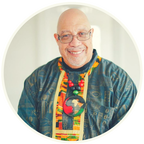|
In September 2020, president trump issued an executive order excluding from federal contracts any diversity and inclusion training interpreted as containing “Divisive Concepts,” “Race or Sex Stereotyping,” and “Race or Sex Scapegoating.” Among the content considered “divisive” is Critical Race Theory (CRT).
In response, the African American Policy Forum, led by legal scholar Kimberlé Crenshaw, a founding critical race theorist and a law professor at UCLA and Columbia Universities who coined the term CRT, launched the #TruthBeTold campaign to expose the harm that the order poses. Reports indicate that over 300 diversity and inclusion trainings have been canceled because of the order. And over 120 civil rights organizations and allies signed a letter condemning the executive order. The NAACP Legal Defense and Educational Fund, Inc. (LDF), the National Urban League (NUL), and the National Fair Housing Alliance filed a federal lawsuit alleging that the executive order violates the guarantees of free speech, equal protection, and due process. CRT is not a diversity and inclusion “training” but a practice of integrating race and racism in society that emerged in the legal academy and spread to other fields of scholarship. Crenshaw notes that CRT is not a noun, but a verb. It cannot be confined to a static and narrow definition but is an evolving and malleable practice. It critiques how the social construction of race and institutionalized racism perpetuate a racial caste system that relegates people of color to the bottom tiers. CRT also recognizes that race intersects with other identities, including sexuality, gender identity, and others. CRT recognizes that racism is not a bygone relic of the past. Instead, it acknowledges that the legacy of slavery, segregation, and the imposition of second-class citizenship on Black Americans and other people of color continue to permeate the social fabric of this nation. Critical Race Theory recognizes that systemic racism is part of the American life, and challenges the beliefs that allow it to flourish. According to Crenshaw, "Critical Race Theory is a practice. It's an approach to grappling with a history of White supremacy that rejects the belief that what's in the past is in the past, and that the laws and systems that grow from that past are detached from it." Critical Race Theory maintains that law and legal institutions in the United States are "inherently racist and maintain that legal institutions in the US "function to create and maintain social, economic, and political inequalities between whites and nonwhites, especially African Americans and maps the nature and workings of 'institutional and systemic racism." Critical Race Theory is not, and has never been, just a problem of isolated instances of individual bias and private prejudice which we can solve by enacting 'color-blind' laws and policies. It tracks the ways in which the 'color-blind racism' of today's post-civil rights era entrenches racial disparities, discrimination, and disadvantage among Black, Brown, and Native American communities without ever explicitly using the language of “race and racism." Critical Race Theory is about White American Racism, through and through. Slavery did not just fall from the sky. It was intentional. In fact, racism is a normal feature of White American Society and is embedded within systems and institutions, like the legal system, that replicate racial inequality. This dismisses the idea that racist incidents are aberrations, but instead are manifestations of structural and systemic racism. Racism was, and still is, intentional, and is as American as apple pie. Is there any wonder why Republicants do not want Critical Race Theory or Racism taught and discussed in high school and in college and university classrooms? The Struggle Continues!
0 Comments
Leave a Reply. |
AuthorRodney. L. Hurst, Sr. Archives
June 2024
Categories |
RODNEY L. HURST, SR. - THE STRUGGLE CONTINUES!

 RSS Feed
RSS Feed
